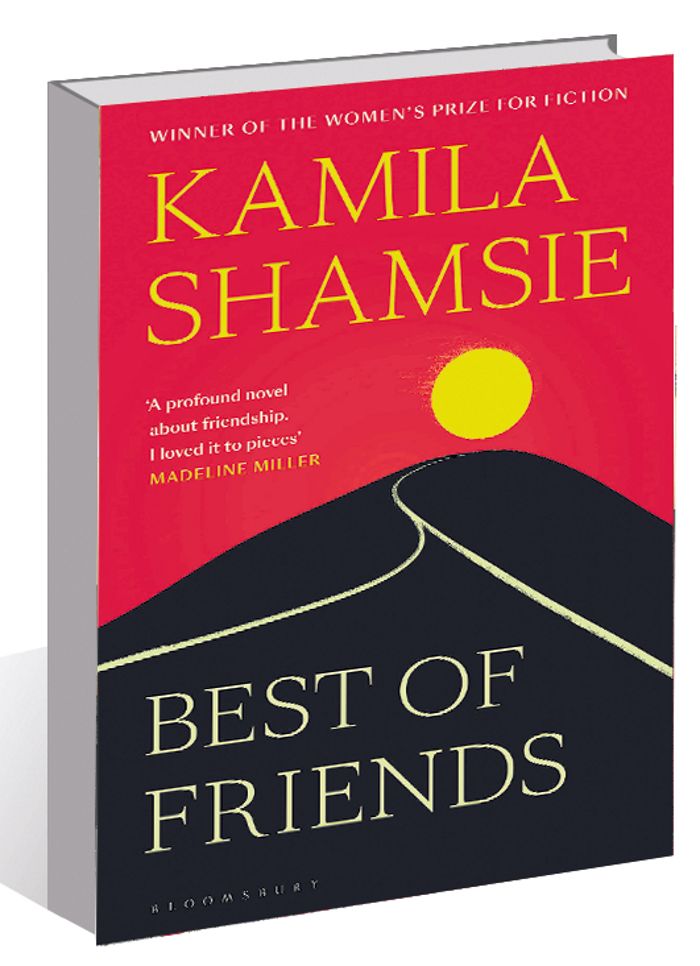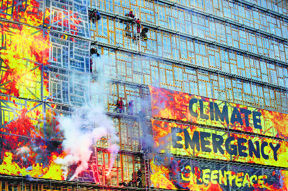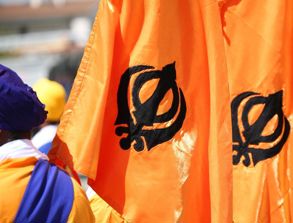Best of Friends by Kamila Shamsie. Bloomsbury. Pages 315. Rs 599
Book Title: Best of Friends
Author: Kamila Shamsie
Bindu Menon
In the last days of Zia-ul-Haq’s martial rule in Pakistan, two schoolgirls in Karachi dream of an unshackled future. Maryam and Zahra are the rather precocious protagonists of Kamila Shamsie’s new novel ‘Best of Friends’. As the title suggests, it is the journey of the two childhood friends, from their elite school years to the ambitious career-driven paths that they chart for themselves. The novel is broadly split into two parts in terms of geography and time.
The first half takes place in the Karachi of the late 1980s where Maryam and Zahra are busy navigating their teen years, preoccupied with school, boys, fashion, pirated movies, music on the Walkman, and George Michael posters plastered on the wall.
Maryam is the spunky, cricket-playing, chauffeur-driven heiress of a leather business who spends family vacations in their London home, while Zahra is the more academically bent, politically aware daughter of a TV cricket anchor. But their different backgrounds don’t come in the way of their friendship.
In 1988, Pakistan is a country in churn, on the cusp of democracy. And Shamsie deftly showcases the political upheavals through the lens of the 14-year-olds. There is an instance where Zahra’s father gets a “friendly” warning from a Brigadier friend for failing to mention in his programme that it was Zia who brought Imran Khan out of retirement. Life goes on for the two friends in Karachi with its “repellent dictator and its censored television and the everyday violence that had shrunk all their lives into private spaces”. Shamsie also lets us know that then, and perhaps even now, “in a nation of oppression and losses, cricket was a blazing light, an arena where you could feel proud of your country and united with your compatriots”.
Ironically, as Benazir Bhutto takes over the task of running the country, the contours of the girls’ lives and friendship will soon be defined by one singular episode, a car journey with two young men — a long evocative brilliant passage that conveys the chilling vulnerability of teenage girls, or girlfear, as Maryam succinctly puts it.
Then the novel takes a giant leap 30 years later to London, where Maryam and Zahra are successful career women in their own right but on diametrically opposing sides. Two back-to-back media interviews place their lives in context for the reader. Zahra is now head of the Centre of Civil Liberties, which makes her a celebrity of sorts — a migrant Muslim woman who fights against deportation and is the voice of Britain’s conscience. Maryam, as the Tech Capital News will enlighten, is a venture capitalist, whose investments include a facial-tagging app, and who has no qualms hobnobbing with shady political donors. The friendship is intact and the weekly meetings sacrosanct, yet, there is a fragility.
And when the two men from their shared past return, that friendship is tested.
As Zahra muses, “The problem with childhood friendship was that you could sometimes fail to see the adult in front of you because you had such a fixed idea of the teenager she once was, and other times you were unable to see the teenager still alive and kicking within the adult.”
‘Best of Friends’ is Shamsie’s eighth novel and comparisons are obvious with her acclaimed previous one. A retelling of the Greek tragedy Antigone, ‘Home Fire’ was a hard-hitting novel on family, racial identity and immigration. This one is a little low in drama though one is never in doubt of Shamsie’s elegant prose.
The first half, which navigates through the lives of the teenage girls, feels more rooted and emotional, and one feels invested in the story of Maryam and Zahra. But that slightly dissipates when the novel fast-forwards to London and the political messaging takes precedence over the narrative. Yet, the story does have its resonating moments.














